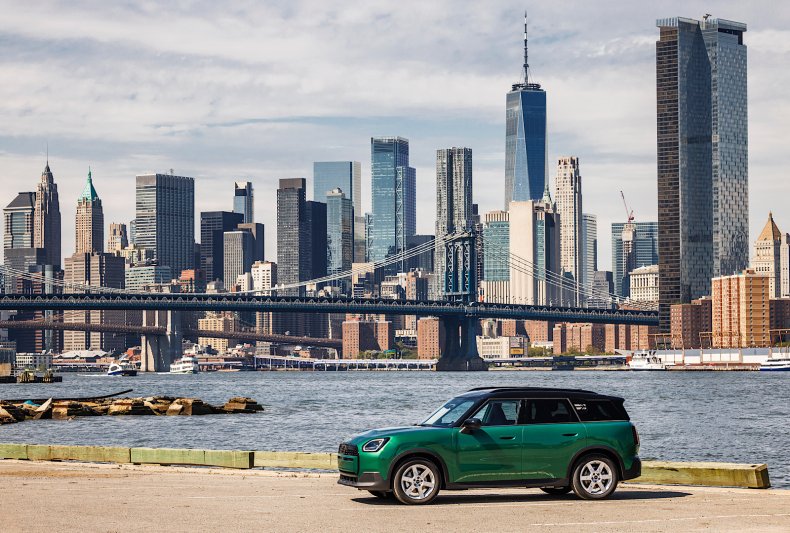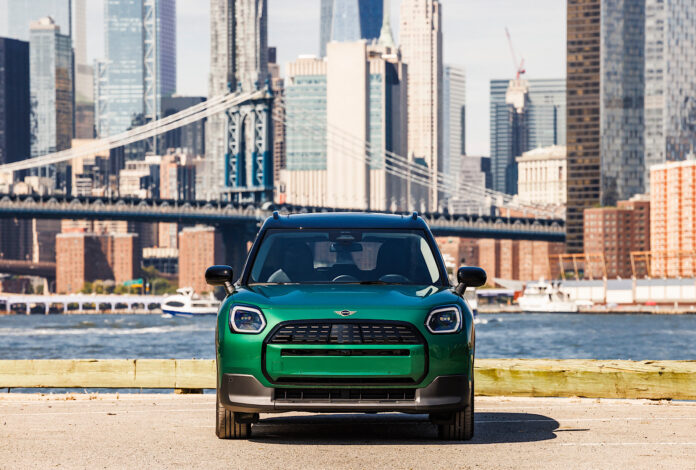Yes, the U.S. will new electric MINIs. But, not yet. The MINI Countryman Electric will be first to market and plans for the introduction of the MINI battery-electric car and Aceman battery-electric crossover will be announced in the fourth quarter of this year.
The next two years are big ones for MINI. The BMW Group brand is expanding its portfolio in a bid to become more relevant than ever. It’s the culmination of a multi-prong strategy that encompasses the global marketplace and treats MINI’s Cooper, Aceman and Countryman lineup seriously.
The automaker plans to sell a mixture of internal combustion engine-powered and battery-electric vehicles around the world. The Inflation Reduction Act (IRA) and associated electric vehicle parts sourcing regulations, which Wurst calls “a protectionist topic”, adds complexity to the MINI business case in the U.S.
MINI has long been expected to build a plant in Mexico to build cars for the Americas. Industry watchers were charting the plant to come online in the last part of the decade. That plan may be being reworked as a result of the IRA and associated rule making, which drives up the cost of electric vehicle adoption for buyers of models made outside the U.S.
MINI
“We have to work with it, for MINI with having a much lower volume, but indeed, a very steep growth curve. There’s different strategies to be applied. And we haven’t disclosed and told everything we are going to do yet. But we are well aware of that fact that we have to act differently than BMW, and to cover the world in a different manner,” Wurst told Newsweek.
“Whatever suits the U.S. doesn’t suit China and the other way around … It’s not a secret that’s just at the at the moment how the world works for us.”
In a bid to reach carbon neutral status, the company is going beyond the tailpipe and looking toward circularity as a means of achieving climate responsibility goals. The new Cooper isn’t just a home to sustainably created materials. It is a more sustainable vehicle as a whole.
“In a couple of years, you want to dismantle a MINI Cooper, then you have to dismantle fewer things [because it has less components] … [There are] a lot of things that already went into the design process that make the product more recyclable in the future, because we’re using less materials and different materials that are not so scarce,” Wurst said.

MINI
She gave examples saying that MINI is recycling reclaimed aluminum and using it, integrating knitted material in to the model, and using batteries that contain no rare earth metals.
Wurst sees MINI as having a solid place in the future based on the strategy of lessening carbon emissions in cities. U.S. cities have begun adopting regulations and fees surrounding low emissions zones, taking a page from existing rules in Europe and Asia.
“The brand really kind of aligns with some of the smart city initiatives happening globally,” Wurst said. “There’s also the movement toward thinking about cities and future of design and how automobiles can be incorporated with multimodal forms of transportation.
“We have to think in Europe also about maybe cities that at one point in time, they will ban a specific type of or size of vehicle. And I think MINI can play a huge role here. And I think we have to be really open minded and again, forward thinking within BMW Group because I think MINI can be a key ingredient in being successful in urban areas in the future.”


